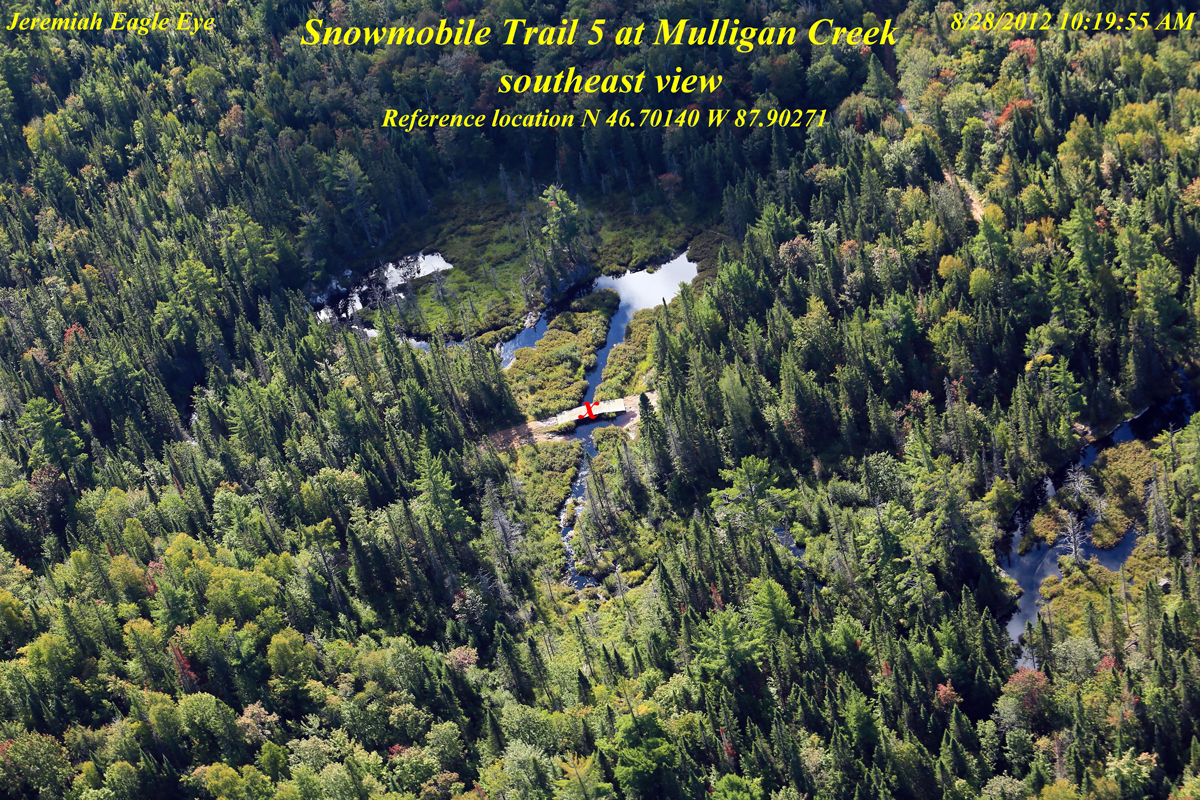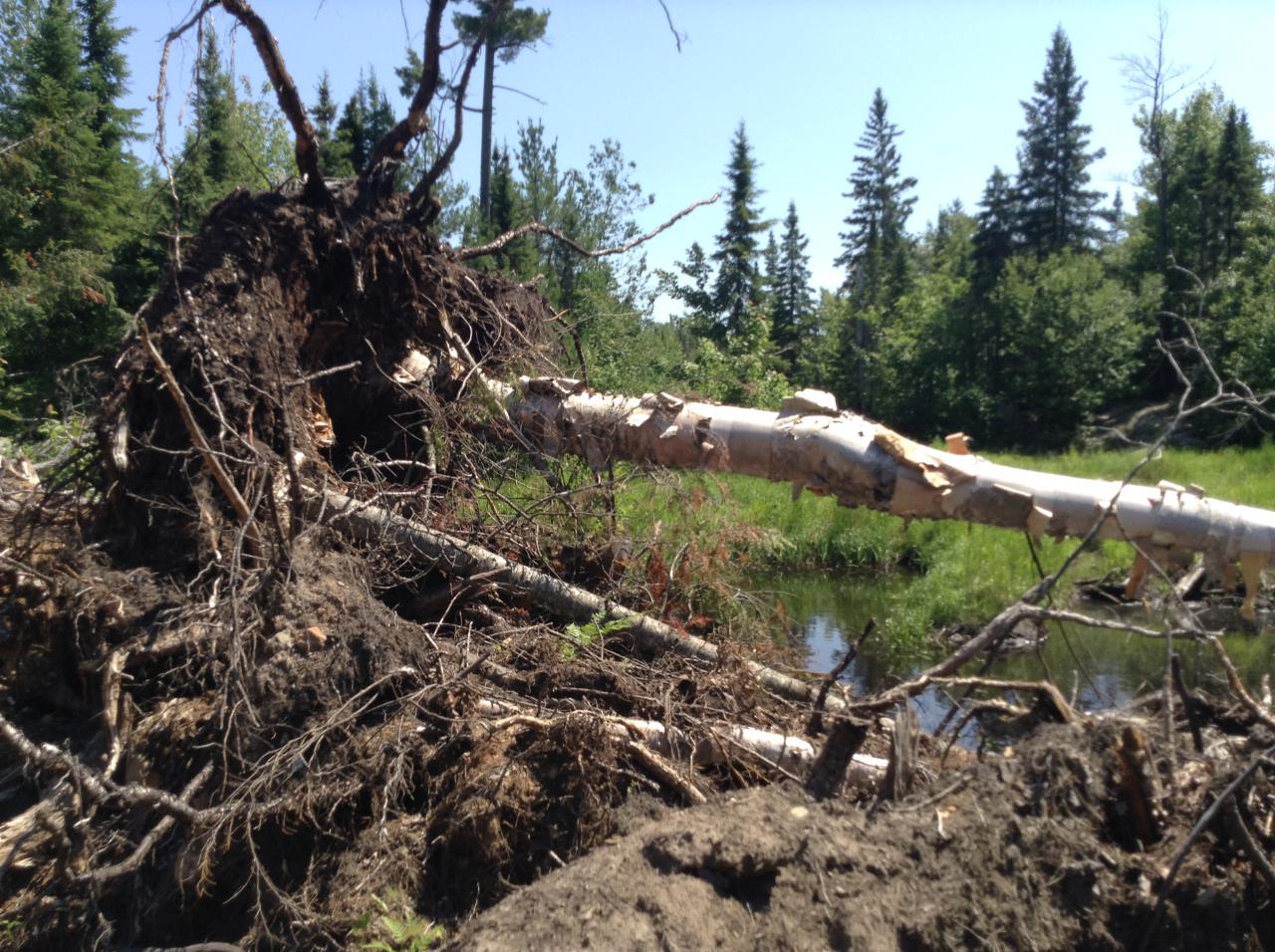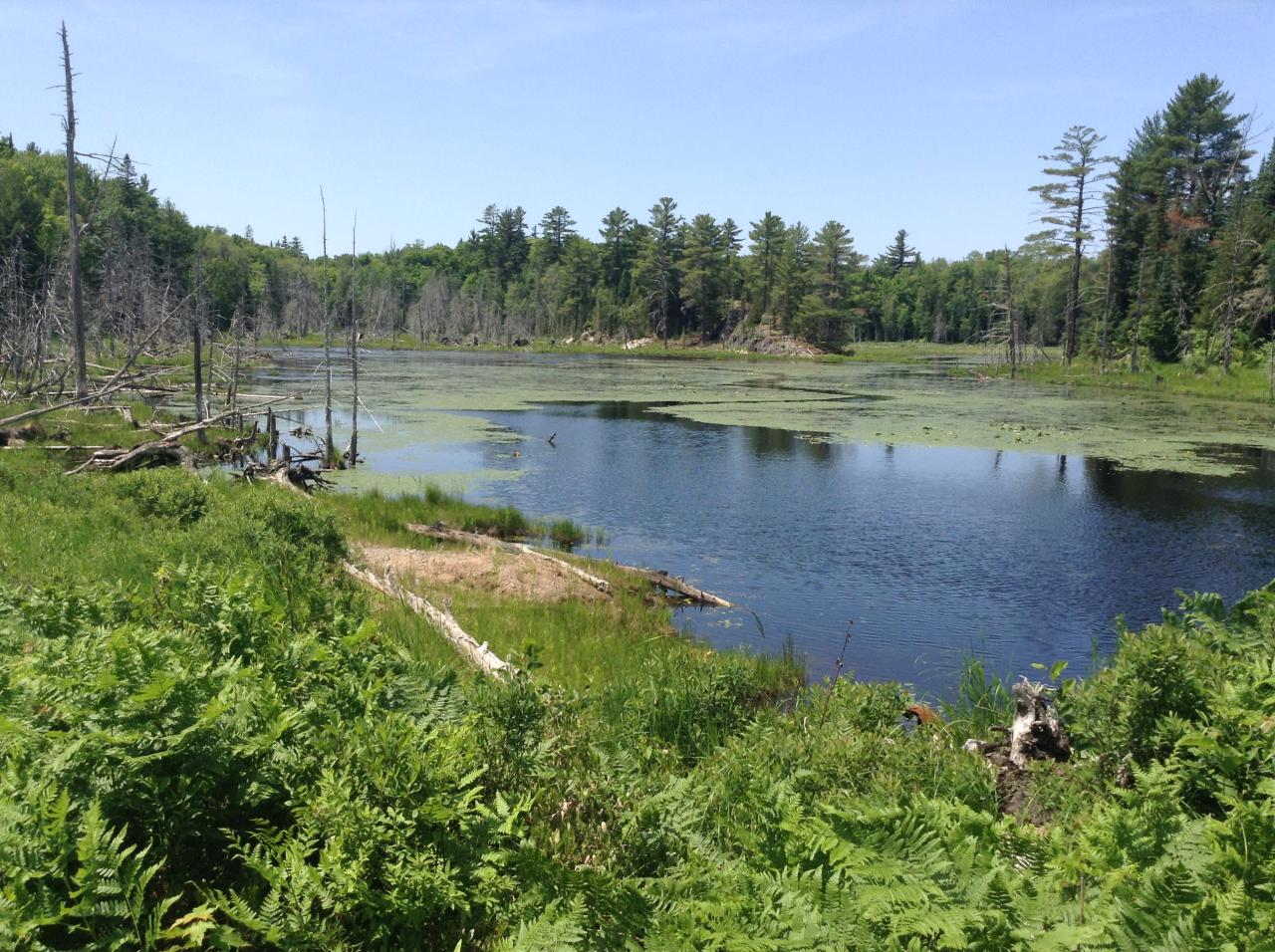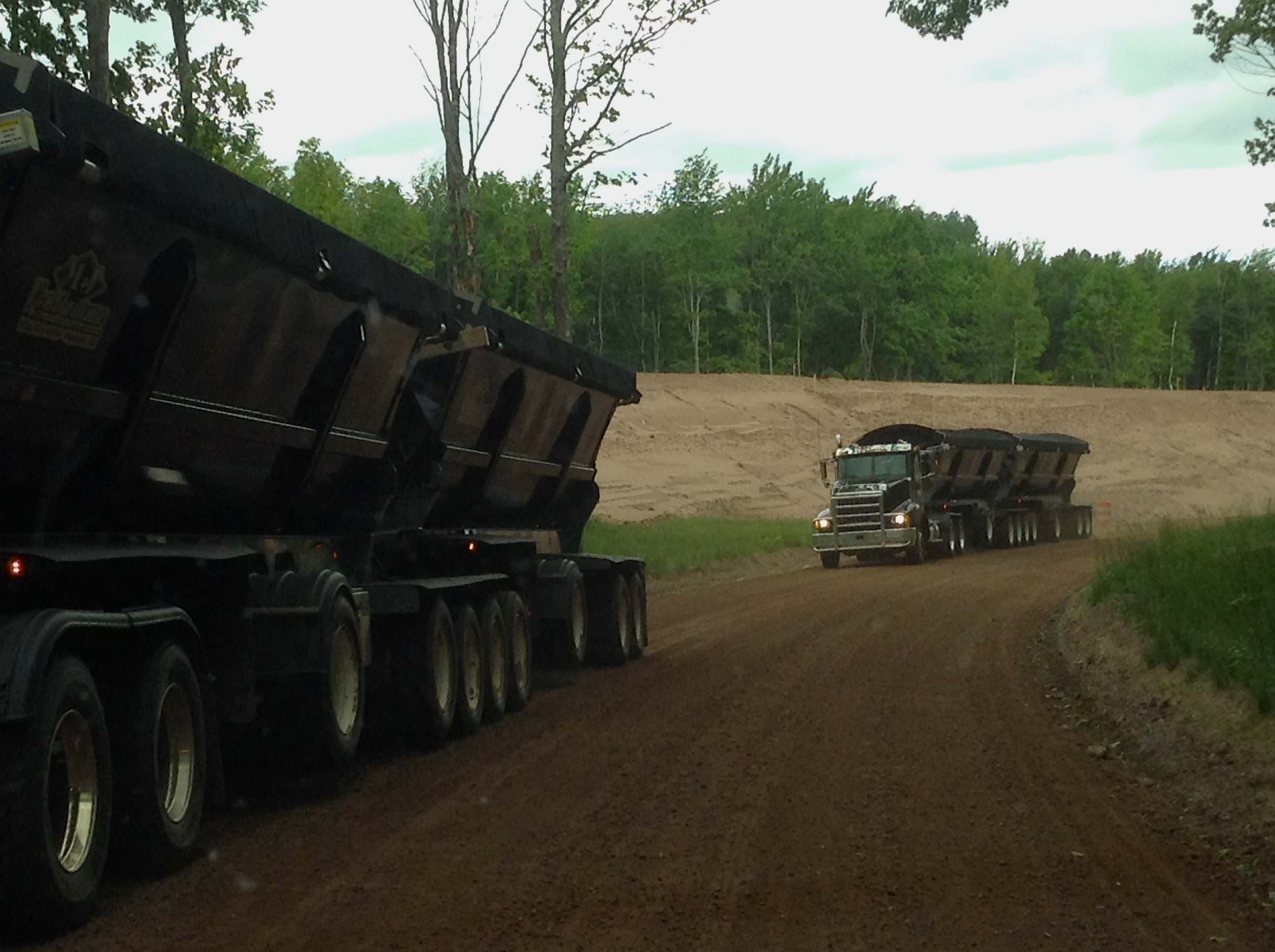By Jessica Koski*
Proposed Marquette County Road 595 would irreversibly impact high quality wetlands at the headwaters of several watersheds and foreseeably lead to additional roads that would open up one of Michigan’s last remaining wilderness areas to resource exploitation.
Wetlands are a foundation of our nation’s water resources and are one of the most biologically productive ecosystems on Earth, rivaling that of tropical rainforests. Vital to the health of waterways, wetlands recharge groundwater, absorb floodwaters and filter pollution. They provide essential wildlife habitat, agricultural resources (berries, wild rice), timber production and economic activities. Michigan’s economy depends on tourism dollars from hunting, fishing and outdoor recreation businesses enabled by wetlands.
Yet, wetlands are on the frontlines of development and their preservation is vastly underappreciated. Michigan has already lost more than half of its original 11 million acres of wetlands due to filling and draining.

Before: Aerial view of Mulligan Creek, showing the Snowmobile Trail #5 crossing, proposed route of County Road 595. Photo by Jeremiah Eagle Eye.

After: Mulligan Creek fragile wetlands were degraded by Plum Creek Timber’s illegal “road improvements” along the 595 route, as documented in 2014.
From an Ojibwe standpoint, many culturally significant plants, foods and medicines occur in wetlands and within the County Road 595 project area. These resources are an essential part of Ojibwe lifeway; and tribal rights of access, collection and use are guaranteed through treaties signed with the United States.

Protected: Narrow-leaved gentian is threatened (legally protected) with a status of “imperiled” in Michigan. Found along the proposed 595 route.
Last month, the Marquette County Road Commission voted to sue the U.S. Environmental Protection Agency for its “arbitrary and capricious” objection to County Road 595 over two years ago. In reality, the MCRC failed to submit an application consistent with federal Clean Water Act requirements.**
In EPA’s objection letter, the Michigan Department of Environmental Quality was given detailed requirements to address inadequate wetland minimization and compensation plans, and 30 days to satisfy the objection or deny the permit. MDEQ denied the permit, although the process could have transferred to U.S. Army Corps of Engineers authority.
Prior to a decision, EPA heard directly from the public in Marquette on August 28, 2012. Many citizens expressed concerns in opposition to County Road 595, contrary to many government officials.

Wildcat Canyon Creek crossing, along the proposed 595 route, which would require 22 stream and river crossings.
The lawsuit’s price tag is $500,000 and road construction is estimated to cost $80 to $100 million, without additional maintenance costs. Eagle Mine says they won’t fund the lawsuit or road. Taxpayers are promised they won’t foot the bill. According to local officials, state Sen.Tom Casperson, R-Escanaba, is a driving force behind the lawsuit and an assembly of secret private funders.
Casperson’s road rage is currently attempting to amend Michigan’s Constitution to rob the state’s Natural Resources Trust Fund for timber and mining infrastructure. This is contrary to the opinion of Michigan’s Attorney General and the original intent of the Fund since 1976 to support environmental preservation and enhance outdoor recreation benefits for the public.
Recent Eagle Mine trucking accidents are undeniably a public safety concern. However, even if MCRC is successful, it would be years before County Road 595 could be a reality. Are there alternative actions to more immediately protect the public from ore trucks? Yes.
In June 2013, the Marquette City Commission asked MDEQ to require Eagle Mine to amend its Environmental Impact Assessment regarding transportation. MDEQ denied the request claiming the city is not within the mine’s “affected area.”
Marquette County could object to MDEQ’s unwillingness to enforce the state mining rules. Part 632 states that an EIA shall define the affected area. Because the company significantly changed transportation from rail to truck after receiving a mining permit, the people of Marquette County were never rightfully provided an opportunity during the permitting process to weigh in on transportation impacts and the now inaccurate affected area.
Eagle Mine can also go beyond regulatory requirements and implement best practices. In fact, their original permit included hard cover trailer tops, but switched to soft cover tarps for easier loading and unloading. Is a convenience for Lundin Mining Corp. more important than public safety?
The company could also reconsider its original rail option. This would create jobs, alleviate stress on public road infrastructure and better protect public safety and the environment.
Rail probably could have saved much wasted investment and headache for the local community. Also, imagine if as much political support and energy exhausted into County Road 595 went toward a truck bypass around the city.
Ultimately, local officials are empowered with zoning and ordinance authority to establish more stringent conditions for how, when and where heavy ore trucks travel through the city.

Note: author Jessica Koski is a member of the Keweenaw Bay Indian Community (KBIC). She is an alumna of the Yale School of Forestry & Environmental Studies and currently serves as Mining Technical Assistant for the KBIC. This article appeared in the Marquette Mining Journal on Sunday, Feb. 8, 2015. It is reprinted here with the author’s permission.